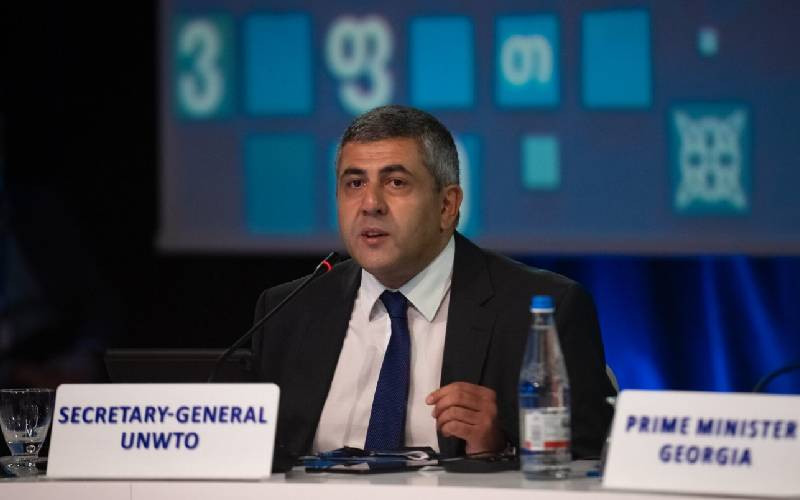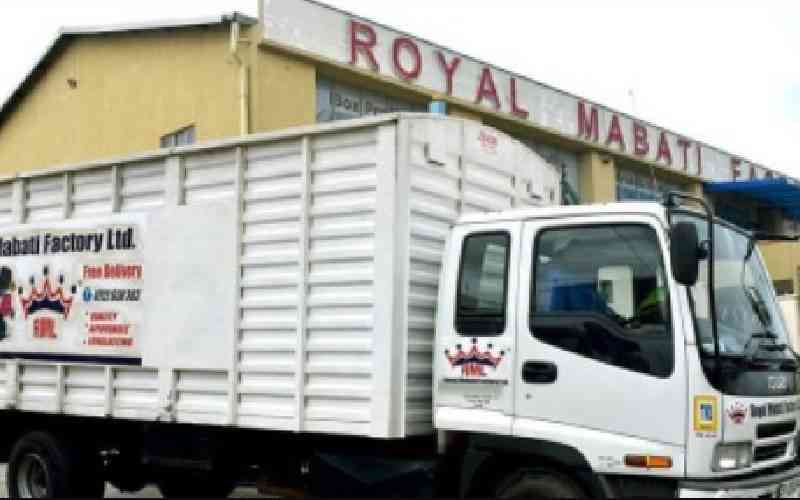By Jevans Nyabiage
When JSE-listed technology firm Altech bought 51 per cent of data infrastructure Company Kenya Data Networks from businessman Naushad Merali in 2008, the fundamentals were all pointing up.
At the time, Kenya’s telecoms industry was experiencing a revolution in data uptake. The South Africans hoped to capitalise on the explosive growth of the industry, brought about by the growing data demand in the region.
When Altech bought KDN, the unit brought in profit of Sh300 million (R30-million) in the first year of entry and another Sh1 billion (R100-million) the next year. This was mostly attributed to the strong growth in the Kenyan ICT sector and further developments in the Kenyan fibre industry.
With this profitability, the East African unit proved to be a sound investment for Altech, contributing 20 per cent of the group’s total operating profit at the time.
“We foresee that East Africa will be responsible for an even larger portion of profits in the near future. East Africa will remain our main focus, we are currently bedding down the investment before we potentially roll-out the Altech business model elsewhere in Africa,” the group’s chief executive officer, Craig Venter, was quoted as saying in April 2010.
Came off
But the ‘wheels came off’ in the third year. And last week when Venter released the financial results for the group for six months ending August, the performance had been weighed down by East and West African operations. Altech East Africa operations reported an operating loss of Sh890 million (R89 million).
While the group’s revenue grew 6.8 per cent, to Sh50 million (R5 million), its net profit was hampered by impairments at its East and West African operations. Altech made a Sh5.86 billion (R586 million net loss) after writing down East and West Africa to the tune of Sh6.76 billion (R676 million), which included around Sh3 billion (R300 million) in impairments in international bandwidth in its East African operation.
Venter outlined a number of factors contributing to the lower performance, including management challenges and high staff turnover, as well as poor customer service and network reliability issues leading to loss of key customers.
Further, the former management failed to adapt to the group’s strategy, management controls and governance were not adhered to, and project management, execution and quality controls were insufficiently implemented.
The stem further losses, Altech says it has laid down an elaborate strategy — including bringing on-board new equity investors. It said discussions have been initiated with equity investors to inject cash to help KDN recover from losses.
JSE-listed Altech of South Africa, which owns 60.8 per cent stake, says it needs new capital to shore up its Kenyan business, which is facing stiff competition from rivals Wananchi Telecoms, AccessKenya and Telkom Kenya.
Initiated discussions
“Altech has initiated discussions concerning the introduction of partners into the group’s East African operations, and will advise shareholders of progress in this regard, in due course,” Altech said last week in a message note to shareholders, even as sources indicated that the firm’s top management — including Venter — will be in Nairobi for a ‘major announcement’.
It is not clear, however, whether the firm will create new shares for the investors or its principal shareholders will cede some shares.
Apart from Altech, other key shareholder in KDN is Sameer ICT, which is associated with businessman Naushad Merali. Sameer ICT owned 96 per cent of KDN while its former CEO Kai Wulff held a four per cent stake, until 2008, when Altech bought a 51 per cent share in the company. The South Africans increased its ownership to 60.8 per cent in 2009.
When contacted for comment, Altech KDN Chief Executive Officer, Shahab Meshki, expressed optimism for business performance.
“We have now realised positive improvements on our network. Our network stability recently improved from 83 per cent to its current 98 per cent – targeting industry standards of up to 99.9 per cent. And because of our regional resource deployment and collaboration, this has strengthened our sales and technical expertise,” Meshki, said in a statement to Business Weekly.
He added that the company’s overall strategy had changed and the focus of the business was now hinged on providing customised services for the different industry sectors of the economy. This was illustrated by the steady uptake of data centre services — with the first floor of the new Altech Sameer East Africa Data Centre having been sold out and customers requesting additional capacity for their data.
Venter also said that Altech had installed a new management team, which was making headway. He also pointed to the group’s underestimation of the risks involved in entering a new geographical area and new area of activity, as well as the capital- and labour-intensiveness of the business.
Taken for granted
“I think Altech made the same mistake that several other telecom companies have made — they appear to have taken the Kenyan market for granted,” Peter Wanyonyi, a telecoms consultant, said. “A look at KDN’s management shows that there are no East Africans at the top level. Experience has shown us that even in the mobile sector, local market knowledge is priceless.”
As has been documented in various blog posts, the hiring of an all-expat top management, analysts say appears to have critically sapped morale at KDN. The staff cuts that followed in May, saw some top employees leave the company to join other telcos.
This in turn contributed to technical issues with a number of KDN’s customers.
 The Standard Group Plc is a multi-media organization with investments in media
platforms spanning newspaper print operations, television, radio broadcasting,
digital and online services. The Standard Group is recognized as a leading
multi-media house in Kenya with a key influence in matters of national and
international interest.
The Standard Group Plc is a multi-media organization with investments in media
platforms spanning newspaper print operations, television, radio broadcasting,
digital and online services. The Standard Group is recognized as a leading
multi-media house in Kenya with a key influence in matters of national and
international interest.
 The Standard Group Plc is a multi-media organization with investments in media
platforms spanning newspaper print operations, television, radio broadcasting,
digital and online services. The Standard Group is recognized as a leading
multi-media house in Kenya with a key influence in matters of national and
international interest.
The Standard Group Plc is a multi-media organization with investments in media
platforms spanning newspaper print operations, television, radio broadcasting,
digital and online services. The Standard Group is recognized as a leading
multi-media house in Kenya with a key influence in matters of national and
international interest.









